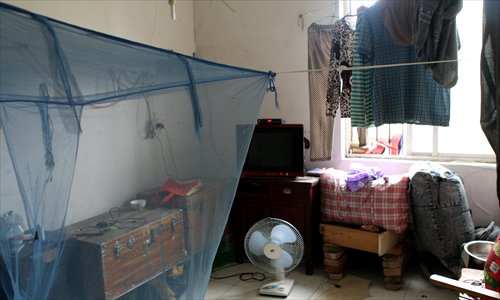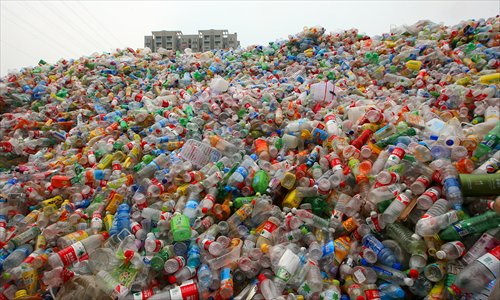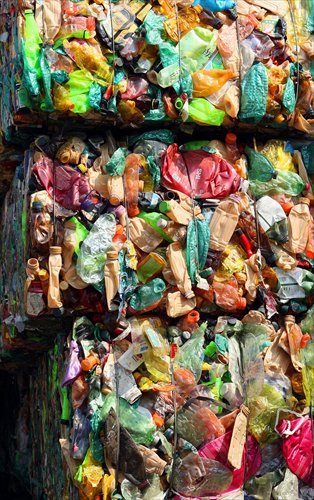HOME >> CHINA
Sorting soda
Source:Global Times Published: 2015-9-5 17:53:01

Ah Hua and his wife hold their wedding photo in front of where they work. They opened this plastic processing plant four years ago and have since hired nine workers. Photo: IC

A worker sorts plastic bottles by type into bags. Photo: IC

Ah Hua and his wife live in a small room near where they sort plastic bottles. Photo: IC

Plastic bottles are piled into mountains. Photo: IC

The plastic bottles are compressed and tied up into hurdles before being sent to factories for further processing. Photo: IC
In Ah Hua's recycling center in northern Hangzhou, Zhejiang Province, plastic Coke, Sprite and water bottles are piled up into mountains.
Everyday Ah Hua and his wife regularly lead nine workers to the foot of the trash mountains to sort the bottles into smaller piles. The bottles are collected from all over the city and they process them to be sold to factories.
"Coke bottles can be sold for 3 cents each, and other bottles are sold for 3 yuan ($0.47) per kilogram," Ah Hua told media.
The sorting at the recycling center is the first step in reusing the bottles. Ah Hua and his workers break down the bottles, then cut some into strips and compress others and tightly pack them together.
The bottles need to be separated from their caps and labels. After drying, they can be sold to factories who then break them down into chemical fibers, used for toy stuffing and even clothes or carpets.
A staff member at the Zhejiang Resource Recycling Association told media that bottle caps can also be recycled and made into different plastic products. Clothes made from recycled plastic can be more comfortable than cotton and using these materials is a new direction for fashion industry right now.
He said that some cotton and the plastic from five 500-mililiter bottles is enough for one T-shirt. Fifty-four 500-mililiter bottles can make a square meter of carpet, and 10 750-milileter bottles can make the stuffing for a winter coat.
If the plastic bottles are not recycled, they can cause environmental damage. They can absorb water and nutrients from the soil and cause crops not to grow. They can also be swallowed by animals and cause death.
Global Times
Posted in: In-Depth